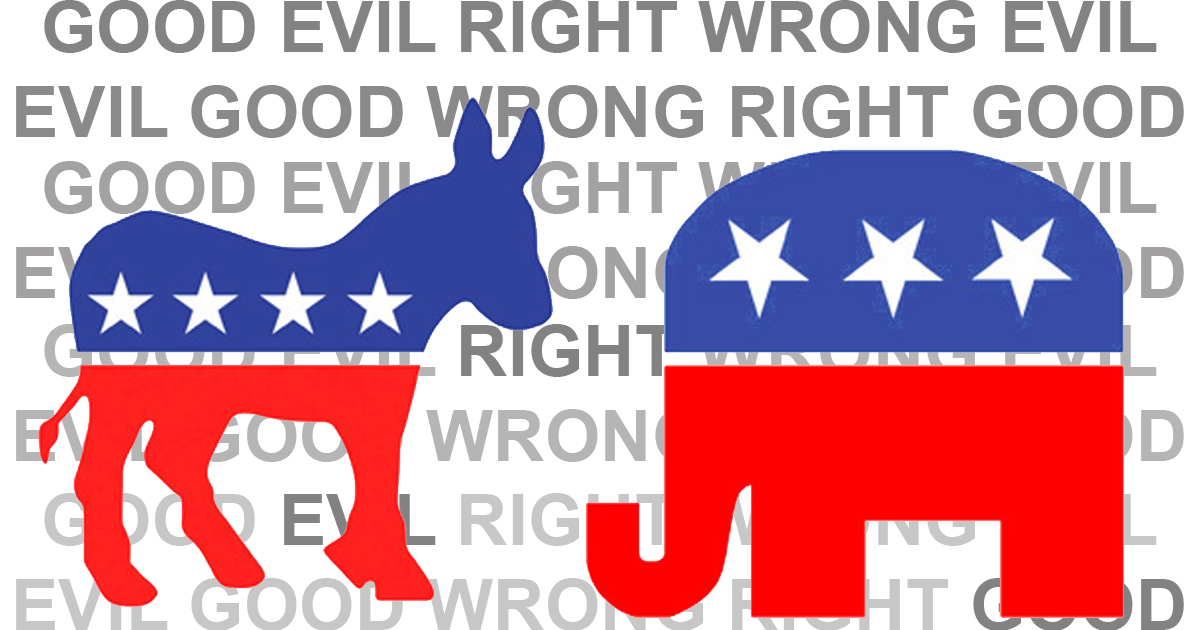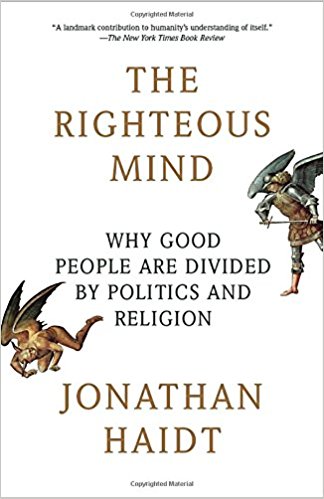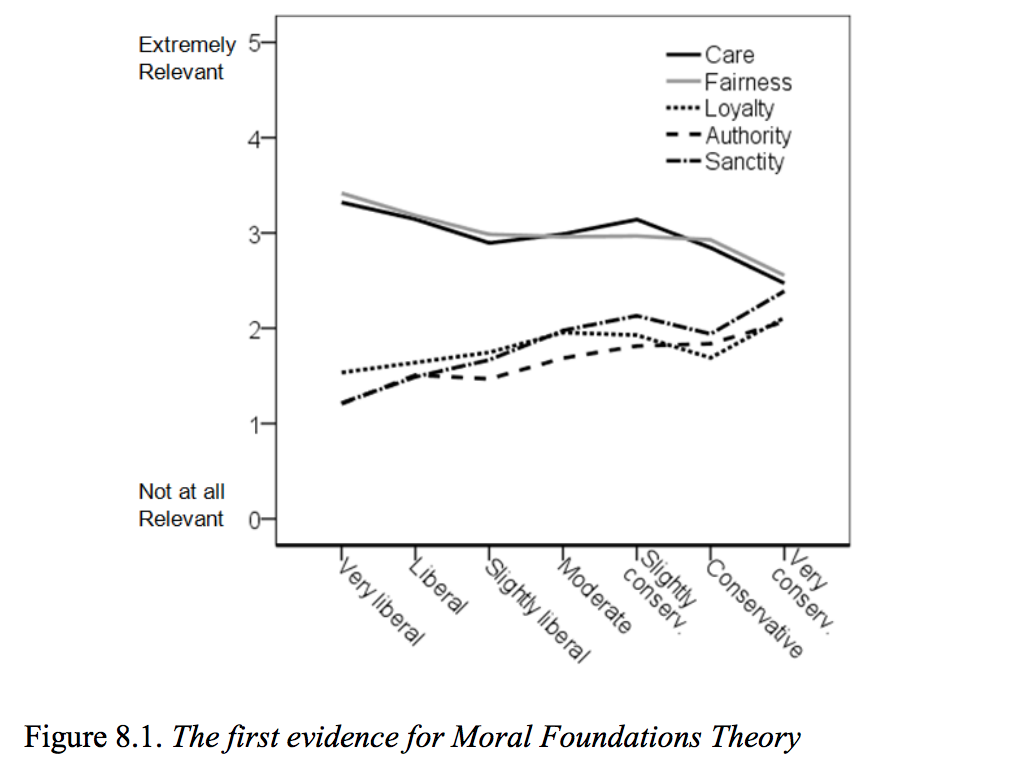
Overview
You are a ________ fill in the blank. Go ahead, fill it in. You’re a Democrat, a Republican, a libertarian, or a socialist. Or maybe you’re an Evangelical Christian, a Muslim, a Jew, or an atheist.
And you think everyone else – those greedy Republicans, those lazy Democrats, those godforsaken atheists – is at best plain wrong or irrational; at worst, immoral and depraved. In The Righteous Mind, moral psychologist Jonathan Haidt has a message for you: you’re wrong.
The Elephant of Our Minds
Haidt compares our brain to a rider upon an elephant. The rider represents reasoning and the elephant, emotion. In this analogy, the rider exists to serve our lumbering, emotional elephant.
Indeed, the elephant processes events and instantly makes moral judgments. Then, the rider begins to reason. As a result, we beat back contradictory information, working overtime to find evidence in support of our decision. Presumably, when intuitions come first and reasoning second, absolute truth isn’t our top priority – that goes for all of us.
What Morality Tastes Like
Haidt explains there are five foundations of morality we all share: care/harm, fairness/cheating, loyalty/betrayal, authority/subversion, and sanctity/degradation.
But, much like taste preferences, we each respond in unique ways to these moral modules. Some of us care more about sanctity (e.g., social conservatives), while others are more concerned with fairness (e.g., liberals). In fact, the more socially conservative someone is, the likelier they are to rate all five foundations of equal importance. On the other hand, liberals/leftists and libertarians mostly respond to the fairness and care foundations and significantly less to the others.
To be sure, socialists and libertarians aren’t agreeing on policy preferences. Instead, their moral convictions are rooted in the same foundations. For me, at least, this was fascinating to learn.
Recommendation
I strongly recommend The Righteous Mind. It is one of the best books I’ve read this year, and it’s enormously important considering the current political polarization straining our democracy. Ideally, we can learn to listen to one another, stop being so tribal, and better recognize when our stubborn elephant is dominating our moral calculus.
After reading this book, I know to be cognizant of my own biases and moral judgments, and to be more skeptical of those who proclaim to be the standard-bearers of absolute morality – especially if I agree with them.
You are a ________ fill in the blank. Go ahead, fill it in. But don’t let that define how swiftly and harshly you condemn The Other Side. Try listening and reasoning first.
Get your copy of The Righteous Mind

